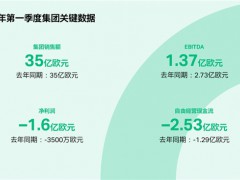據(jù)阿拉伯貿(mào)易網(wǎng)2023年6月7日迪拜報(bào)道,全球著名的國(guó)際化設(shè)計(jì)咨詢公司GHD于6月7日發(fā)布的一項(xiàng)最新研究結(jié)果顯示,過去3年席卷全球的能源危機(jī),已經(jīng)造成了一場(chǎng)完美的、多維度的全行業(yè)沖擊風(fēng)暴,其中包括嚴(yán)重削弱投資水平的資本緊縮。
“震驚”是迄今為止在能源行業(yè)領(lǐng)導(dǎo)者中開展的最大的全球民意調(diào)查結(jié)果之一,該調(diào)查顯示,94%的能源行業(yè)領(lǐng)導(dǎo)者認(rèn)為當(dāng)前的能源危機(jī)是他們所在市場(chǎng)經(jīng)歷過的最嚴(yán)重危機(jī)。據(jù)能源行業(yè)的首席財(cái)務(wù)官們稱,2020年至2022年期間的投資水平估計(jì)比預(yù)計(jì)削減金額少了2030億美元。
極端的市場(chǎng)波動(dòng)和地緣政治緊張局勢(shì)使能源安全成為全球議程中的重要議題,四分之三的能源行業(yè)領(lǐng)導(dǎo)者表示,這是他們所在企業(yè)的最大擔(dān)憂。
這種破壞對(duì)世界各地的經(jīng)濟(jì)和社區(qū)產(chǎn)生了重大影響,能源部門提供可靠、負(fù)擔(dān)得起的低碳能源的社會(huì)壓力從未像現(xiàn)在這樣大。報(bào)告稱,四分之三的能源行業(yè)領(lǐng)導(dǎo)者(74%)認(rèn)為能源價(jià)格是目前通貨膨脹的最大原因,76%的人認(rèn)為能源危機(jī)正在降低全球的生活水平。
氣候沖擊繼續(xù)迫使能源轉(zhuǎn)型加速,但實(shí)現(xiàn)凈零排放的進(jìn)程正受到復(fù)雜動(dòng)態(tài)因素影響。42%的受訪者表示,目前的能源危機(jī)加快了受訪者所在企業(yè)的凈零排放計(jì)劃,已經(jīng)比平均提前了5年;而近一半的能源行業(yè)領(lǐng)導(dǎo)者(47%)表示,能源危機(jī)使他們的凈零排放計(jì)劃平均推遲了6年。
盡管這場(chǎng)能源危機(jī)可能阻礙了許多公司的凈零戰(zhàn)略,但由此引發(fā)的天然氣價(jià)格波動(dòng)推動(dòng)了能源資產(chǎn)的多元化,70%的能源行業(yè)領(lǐng)導(dǎo)者報(bào)告稱,過去12個(gè)月天然氣價(jià)格的波動(dòng)加速了他們企業(yè)對(duì)可再生能源發(fā)電資產(chǎn)的采用。
GHD負(fù)責(zé)英國(guó)、歐洲和中東的未來能源執(zhí)行董事Tom Foley表示:“盡管阿聯(lián)酋是全球著名的石油生產(chǎn)國(guó),因此不太容易受到供應(yīng)沖擊的影響,但阿聯(lián)酋已經(jīng)認(rèn)識(shí)到多元化的重要性,并大大加強(qiáng)了對(duì)能源轉(zhuǎn)型項(xiàng)目的投資。我們的研究支持了這一點(diǎn)。該研究顯示,當(dāng)前的全球能源危機(jī)已促使61%的阿聯(lián)酋能源公司加快投資,擴(kuò)大其可再生能源組合。作為今年晚些時(shí)候即將舉行的COP28的主辦國(guó),國(guó)際社會(huì)期望阿聯(lián)酋堅(jiān)持其凈零排放的目標(biāo),并促進(jìn)能源轉(zhuǎn)型。”
隨著GHD和全球能源行業(yè)領(lǐng)導(dǎo)者展望該行業(yè)的未來,令人震驚的報(bào)告確定了有助于降低能源轉(zhuǎn)型風(fēng)險(xiǎn)的五個(gè)關(guān)鍵優(yōu)先事項(xiàng):
*釋放資金和市場(chǎng):為能源項(xiàng)目降低風(fēng)險(xiǎn)并釋放資本流動(dòng),需要明智的規(guī)劃、許可、政策和監(jiān)管框架。
*增壓改造解決方案:將經(jīng)過深思熟慮的設(shè)計(jì)原則整合到新能源基礎(chǔ)設(shè)施中,并對(duì)現(xiàn)有基礎(chǔ)設(shè)施進(jìn)行改造,對(duì)于幫助建立系統(tǒng)彈性至關(guān)重要。
*仔細(xì)平衡供應(yīng)鏈和資源:成功的轉(zhuǎn)型將需要獲得新的原材料流、重新配置的供應(yīng)鏈和學(xué)習(xí)新技能的勞動(dòng)力。
*確保社區(qū)理解和社會(huì)公眾接受:為關(guān)鍵項(xiàng)目贏得社會(huì)公眾接受,需要宏觀和社區(qū)層面的參與和教育。
*確保公正的過渡:無風(fēng)險(xiǎn)的過渡是公平、平衡和公正的過渡。轉(zhuǎn)型的成本必須在國(guó)家之間和社區(qū)之間公平分?jǐn)偅源_保不讓任何一員掉隊(duì)。
這項(xiàng)研究采用了兩種核心研究方法:對(duì)450名高級(jí)能源行業(yè)決策者的定量意見研究和對(duì)行業(yè)思想領(lǐng)導(dǎo)者的10次定性訪談。這項(xiàng)研究集中在10個(gè)主要市場(chǎng):澳大利亞、加拿大、智利、德國(guó)、新西蘭、新加坡、菲律賓、阿聯(lián)酋、英國(guó)和美國(guó)。 此外,還對(duì)巴西、埃及、印度和南非等國(guó)的能源行業(yè)領(lǐng)導(dǎo)人進(jìn)行了額外采訪。
李峻 編譯自 阿拉伯貿(mào)易網(wǎng)
原文如下:
Energy crisis shocks impact investments: study
The energy crisis that has rocked the world over the past three years has created a perfect, multidimensional storm of sector-wide shocks including a capital crunch that has severely depleted investment levels, reveals a new research launched today by global professional services company GHD.
Shocked, one of the largest global opinion research studies ever undertaken among energy sector leaders, reveals that 94 percent of energy leaders believe the current energy crisis is the most severe their market has ever experienced. And according to energy sector CFOs, investment levels between 2020 and 2022 were an estimated $203 billion lower than they otherwise would have been.
Extreme market volatility and geopolitical tensions have put energy security high on the global agenda, with three-quarters of energy leaders reporting that this is the number one concern for their organisation.
This disruption has had a significant impact on economies and communities around the world and societal pressure on the energy sector to provide reliable, affordable, low-carbon energy has never been greater. Three-quarters of energy leaders (74 per cent) believe energy prices are currently the biggest contributor to inflation, and 76 per cent say the energy crisis is reducing the standard of living across the globe, the report said.
The climate shock continues to force an acceleration of the energy transition, but progress towards net zero is being impacted by the complex dynamics at play. While 42 percent say the current energy crisis has accelerated their organisation’s net-zero plans – by an average of five years – almost half of energy leaders (47 percent) state that the crisis has decelerated their net-zero plans – by an average of six years.
While the crisis may have put the brakes on net-zero strategies for many companies, the resulting volatility in natural gas prices has driven the diversification of energy assets, with 70 per cent of energy sector leaders reporting that the volatility in natural gas prices over the past 12 months has accelerated their business’s adoption of renewable energy generation assets.
Tom Foley, Executive Director (UK, Europe & Middle East) Future Energy at GHD, said: "Despite being a prominent global oil producer and thus less vulnerable to supply shocks, the UAE has recognised the importance of diversification and has significantly bolstered investments in energy transition projects. This is supported by our research, which has revealed that the prevailing global energy crisis has prompted 61 per cent of UAE energy companies to expedite their investments in expanding their renewable energy portfolio. As the upcoming host of COP28 later this year, there are international expectations on the nation to uphold its net zero aspirations and facilitate the energy transition.”
As GHD and global energy leaders look to the future of the industry, the Shocked report identifies five key priorities that will help de-risk the energy transition:
* Unlocking money and markets: De-risking and unlocking capital flows into energy projects will require smart planning, permitting, policy and regulatory frameworks.
* Supercharging engineered solutions: The integration of well-thoughtout design principles into new energy infrastructure and retrofitting of existing infrastructure will be critical to help build system resilince.
* Carefully balancing supply chains and resources: A successful transition will require access to new streams of raw materials, re-tooled supply chains and a (re)skilled workforce.
* Securing community understanding and social acceptance: Earning social acceptance for crucial projects will require engagement and education at both a macro and a community level.
* Ensuring a just transition: A de-risked transition is one that is fair, balanced and just. The cost of transition must be spread fairly between countries and across communities to ensure no one is left behind.
Shocked study utilised two core research methods: quantitative opinion research among 450 senior energy sector decision-makers and 10 qualitative interviews with industry thought leaders. The study focused on 10 key markets: Australia, Canada, Chile, Germany, New Zealand, Singapore, the Philippines, the UAE, the UK and the USA. Additional interviews were conducted with leaders based in Brazil, Egypt, India and South Africa etc., it said.
免責(zé)聲明:本網(wǎng)轉(zhuǎn)載自其它媒體的文章及圖片,目的在于弘揚(yáng)石化精神,傳遞更多石化信息,宣傳國(guó)家石化產(chǎn)業(yè)政策,展示國(guó)家石化產(chǎn)業(yè)形象,參與國(guó)際石化產(chǎn)業(yè)輿論競(jìng)爭(zhēng),提高國(guó)際石化產(chǎn)業(yè)話語權(quán),并不代表本網(wǎng)贊同其觀點(diǎn)和對(duì)其真實(shí)性負(fù)責(zé),在此我們謹(jǐn)向原作者和原媒體致以崇高敬意。如果您認(rèn)為本站文章及圖片侵犯了您的版權(quán),請(qǐng)與我們聯(lián)系,我們將第一時(shí)間刪除。







